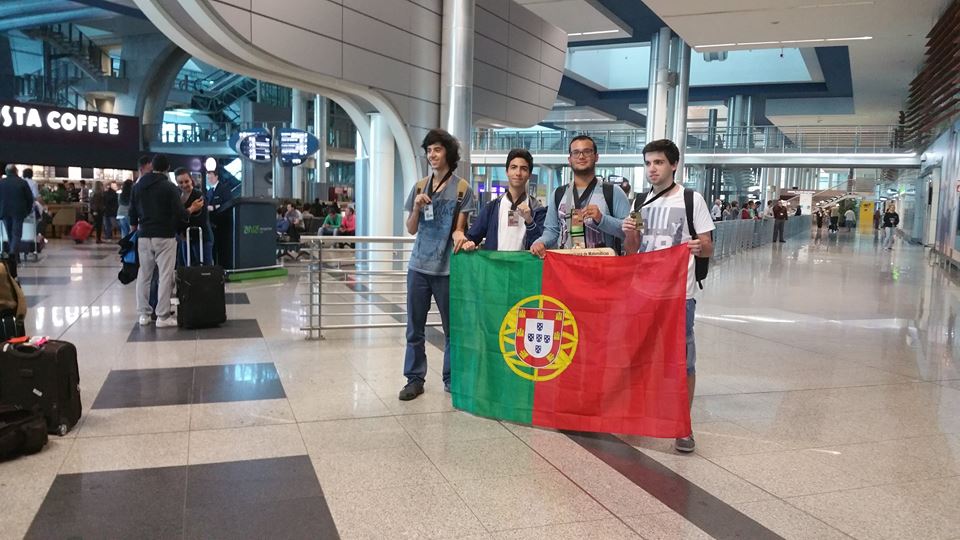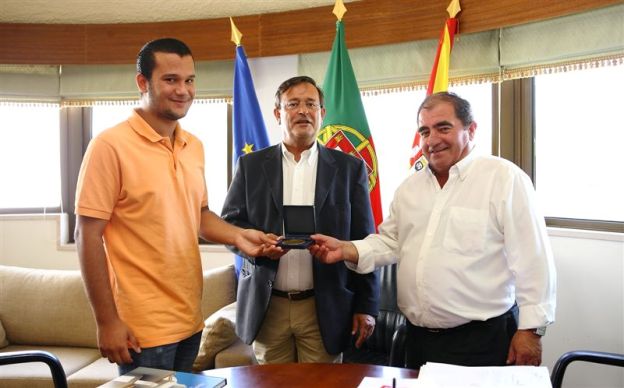
David Andrade is 16 years old and trains «constantly and intensively» to represent Portugal – and the Algarve – in international competitions and has several medals in his curriculum. This could be a top-level athlete's resume, but it's not. It is the curriculum of a young man from Albufeires, with a taste for numbers, who won these awards in Mathematics and Chemistry Olympiads. The last, bronze, was won this week in Puerto Rico, at the XXX edition of the Ibero-American Mathematical Olympiad.
Second told the Sul Informação, these results “are the result of effort, dedication and a taste for mathematics”.
Regarding the medal won last Friday, after participating in the same competition last year, without a prize, David Andrade says that he only thought he could win it, this year, after completing the competitions.
“You never have a clear idea if we can win a medal before solving the race, then we get an idea. Medals are not won according to absolute score, but relative. It is a proportion of the participants who receive the medal, it all depends on the score obtained by everyone», he explained.
The Olympics consist of two events, lasting 4h30, normally on two consecutive days. Each of the tests has three problems to solve.
The preparation of an international competition of this kind is mostly done at home, not least because the problems presented are not resolved only with what is learned in class.
«The learning of Olympic mathematics is mostly done at home, because it is outside the school curriculum. You only train by solving a lot of problems», said David Andrade.

The selection that these students are subject to in order to represent Portugal is similar to the way in which athletes are selected for international competitions. «First there is a selection in schools, then there are the national olympics and the best are chosen for the Delphi Project, at the University of Coimbra, where once a month, for a weekend, there are classes and selection tests, which refine us for these competitions».
The parallel between this competition for mathematical knowledge and sports competitions is not discarded by the student at the Escola Secundária de Albufeira: «there is a very large equivalence. It takes a lot of training. If we don't train for a while, we get “rusty”. There are all the details of an Olympic athlete here, there are things that are processed along the same lines. We are also influenced by the time difference, by the food. The entire environment influences the race. There is still a risk of being able to arrive at the day and block, even in the room where we do the test, there are many factors…».
With a brilliant mind, internationally recognized, for Mathematics, will David Andrade's future have numbers? Maybe, but the decision is not that linear.
“I'm not sure, I don't know what to follow. I have different tastes, it's not just math. I've also participated in chemistry olympics. It's a very big question. In Portugal, in courses, it is difficult to gather different tastes. I also like languages… maybe, at the moment, I decide for something in this area, but, in principle, I'm going to the science area», he revealed.
In addition to David Andrade's bronze, Portugal won three more medals in these Ibero-American Mathematical Olympiads.
Francisco Andrade (Matosinhos), with the highest score, won the gold, Nuno Santos (Porto) took silver and Alberto Pacheco (Gondomar), like David Andrade, brought a bronze medal from Puerto Rico.


















Comments